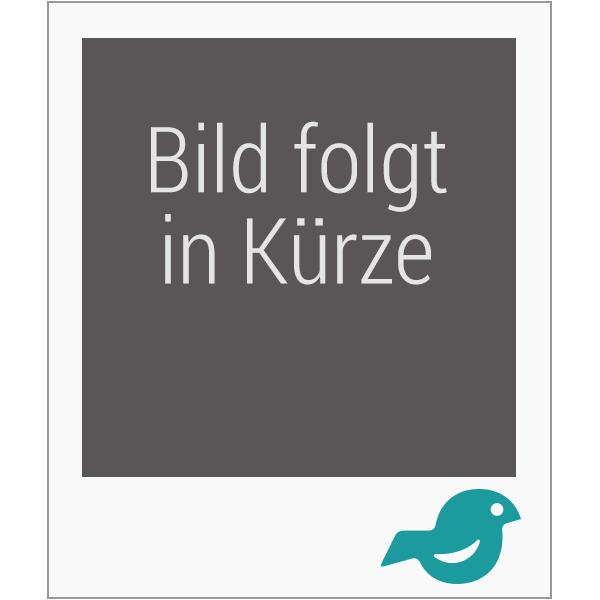
Sein als Freiheit
Die idealistische Metaphysik Meister Eckharts und Johannes Gottlieb Fichtes
Versandkostenfrei!
Nicht lieferbar
Die bei Meister Eckhart und den Vertretern des deutschen neuzeitlichen Idealismus nachweisbaren übereinstimmenden Formulierungen lassen sich letztlich auf ein gemeinsames idealistisches Seinsverständnis zurückführen. Eine Grundthese Eckharts lautet: Das absolute Sein - und das heißt: das Denken, welches die Grundlage des Seins Gottes, ja Gott selbst, ist - darf nicht mit dem auf irgendeine Weise bestimmten Sein verwechselt werden. Die Wahrheit ist also das Ideal, von dem aus man über das Gegebene urteilt, sie ist das, in dessen Licht Wahres überhaupt erst sichtbar wird. Die idealistisch...
Die bei Meister Eckhart und den Vertretern des deutschen neuzeitlichen Idealismus nachweisbaren übereinstimmenden Formulierungen lassen sich letztlich auf ein gemeinsames idealistisches Seinsverständnis zurückführen. Eine Grundthese Eckharts lautet: Das absolute Sein - und das heißt: das Denken, welches die Grundlage des Seins Gottes, ja Gott selbst, ist - darf nicht mit dem auf irgendeine Weise bestimmten Sein verwechselt werden. Die Wahrheit ist also das Ideal, von dem aus man über das Gegebene urteilt, sie ist das, in dessen Licht Wahres überhaupt erst sichtbar wird. Die idealistische Grundthese kann also wie folgt formuliert werden: Etwas ist nicht allein, wenn es faktisch - sei es aktuell, sei es potentiell - vorkommt, sondern das Faktische ist nur dann als Seiendes (in eigentlichem Sinne) zu betrachten, wenn es dem Ideal entspricht. Beim Sein geht es also um keine Realisierung dessen, was (als reale Möglichkeit gegeben, und vom Gegebenen de facto angestrebt) vorher schon war. Das eigentliche Sein ist keine reale, aus dem Vorgegebenen zu realisierende Möglichkeit, sondern eine ideale aus dem (realen) Nichts zu verwirklichende Normativität. Die Realität - das bloße Faktisch-Vorkommende - ist somit von der Wirklichkeit - das Vorkommen dessen, was dem Ideal entspricht - zu unterscheiden. Die Wahrheit kann somit nie bloße Funktion dessen sein, was man selbst ist, keine bloße Funktion also des eigenen Seins des Individuums, sondern sie ist gerade das, was durch die Vernichtung des Eigenen als Befreites zur Geltung kommt. Das Eigentliche des Menschen - genauer: das Eigentliche im Menschen - beruht somit nach Eckhart gerade auf der Vernichtung des Eigenen.
Veröffentlichungen zur mittelalterlichen und neuzeitlichen Philosophie (Meister Eckhart, Thomas von Aquin; Schiller, Kant).
Philosophy of the Middle Ages, modern philosophy, metaphysics, philosophical idealism.
About this book:
The formulations found in Meister Eckhart and in thinkers of modern German idealism, which prove concurrent to each other, can finally be traced back to one common idealistic understanding of Being. One of Eckhart's fundamental premises is as follows: Absolute Being - and this means: that thinking, which is the foundation of God, yes even is God himself - must not be confused with particular beings which are determined in any arbitrary way whatsoever. Truth is therefore the ideal from which we judge the given; it is that, in whose light true things can appear at all. The idealistic fundamental premise can therefore be formulated thus: Something is not simply, when it happens factually, be that actually, be that potentially, but rather the factual is only to be observed as being (in an authentic sense) when it corresponds to the ideal. Therefore, in respect to Being, it is not a matter of a realisation of what already was (not a matter of a realised given possibility, which in turn de facto strives from the given). The authentic Being is not real, not a possibility to be realised out of the given, but an ideal normativity to be fulfilled out of (real) nothingness. Reality - mere facticity - is therefore to be distinguished from fulfillment - the incidence of what corresponds to the ideal. Truth, accordingly, is never merely a function of what one is, more precisely, never merely a function of the individual's own being, but rather is just that, which comes into validity through the destruction of ownness, of possession, and is therefore freedom. What humans own, or better; what is owned in humans, lies, according to Eckhart, therefore in the destruction of owning.
Veröffentlichungen zur mittelalterlichen und neuzeitlichen Philosophie (Meister Eckhart, Thomas von Aquin; Schiller, Kant).
Philosophy of the Middle Ages, modern philosophy, metaphysics, philosophical idealism.
About this book:
The formulations found in Meister Eckhart and in thinkers of modern German idealism, which prove concurrent to each other, can finally be traced back to one common idealistic understanding of Being. One of Eckhart's fundamental premises is as follows: Absolute Being - and this means: that thinking, which is the foundation of God, yes even is God himself - must not be confused with particular beings which are determined in any arbitrary way whatsoever. Truth is therefore the ideal from which we judge the given; it is that, in whose light true things can appear at all. The idealistic fundamental premise can therefore be formulated thus: Something is not simply, when it happens factually, be that actually, be that potentially, but rather the factual is only to be observed as being (in an authentic sense) when it corresponds to the ideal. Therefore, in respect to Being, it is not a matter of a realisation of what already was (not a matter of a realised given possibility, which in turn de facto strives from the given). The authentic Being is not real, not a possibility to be realised out of the given, but an ideal normativity to be fulfilled out of (real) nothingness. Reality - mere facticity - is therefore to be distinguished from fulfillment - the incidence of what corresponds to the ideal. Truth, accordingly, is never merely a function of what one is, more precisely, never merely a function of the individual's own being, but rather is just that, which comes into validity through the destruction of ownness, of possession, and is therefore freedom. What humans own, or better; what is owned in humans, lies, according to Eckhart, therefore in the destruction of owning.



